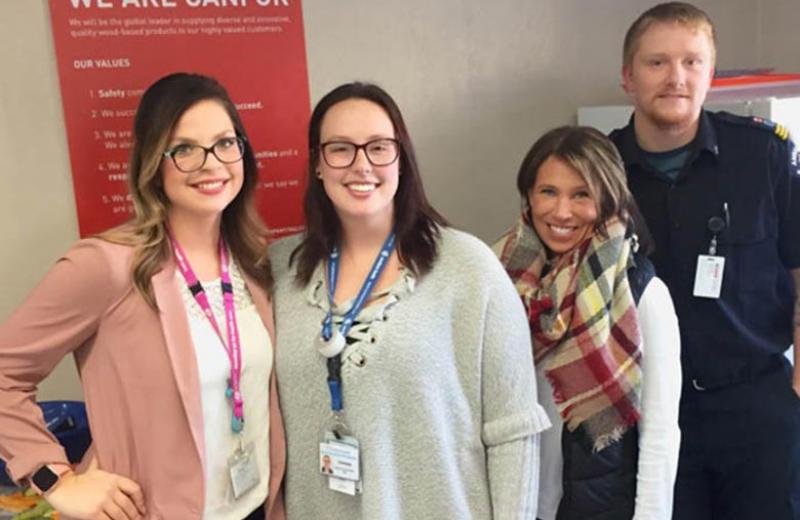The Canadian Men’s Health Foundation estimates that a staggering 72% of Canadian men live unhealthy lifestyles. As well, most forest industry workers are male; for example, Canfor’s BC operations employ about 3,620 men, but only 500 women.
Taken together, these two facts suggest that taking health care directly to pulp mills and sawmills could be a great way to help men improve their health.
With that in mind, the interprofessional health care team from the Chetwynd Primary Care Clinic reached out to Canfor’s Chetwynd mill and West Fraser’s Chetwynd Forest Industries mill to offer on-site screening and health education.
Good health care can, of course, dramatically reduce sick time. As well, there are lots of resources in Chetwynd to help make it easier for people to stay healthy, including a pool, rec centre, parks, and trails.
The two mills were on board, and everyone involved was excited to start this initiative.
Accordingly, nurses and the community paramedic visited the two mills, where they checked workers’ blood pressure and blood sugar, and offered tips for healthy lifestyles.
As well, they handed out information packages containing condoms plus HealthLink BC handouts on a number of topics, including:
- Prostate exams
- Breast exams
- Sleep
- Flu shots
- Addictions
- Mental health
“This was a great way to educate people,” said Chelsea Newman, Primary Care Nurse. “Surprisingly, plenty of people didn’t know Chetwynd even had a clinic. As well, as it gave people the opportunity to look through the [HealthLink BC] information privately.”
The healthcare team was even able to catch a couple of potentially serious health concerns: they sent two mill workers to hospital, where early treatment should help them stay as healthy as possible.
The screening and education were well received: the two mills have asked the healthcare team to come back for more education sessions, and to continue helping them promote healthy lifestyles.
“Overall, I think we now have a better and stronger relationship with the Chetwynd forest industry. This has opened more opportunities for the community as a whole, like more education, less wait times at the clinic, more screening to help avoid hospitalizations, and so on,” said Chelsea. “I’m looking forward to the New Year and working closely with industry to continue the path of health and wellness based on the primary care model that Northern Health is striving for.”














Comments